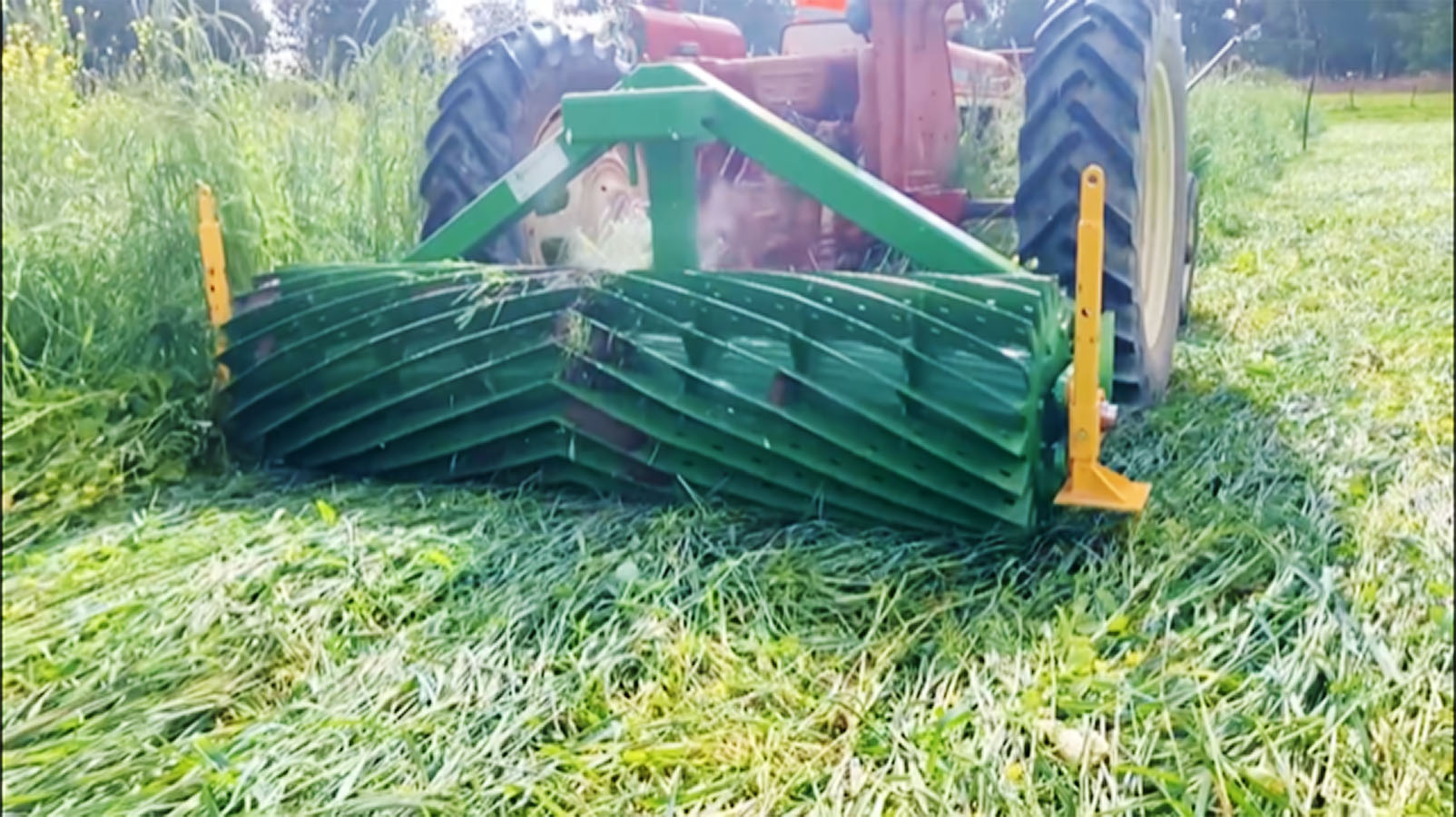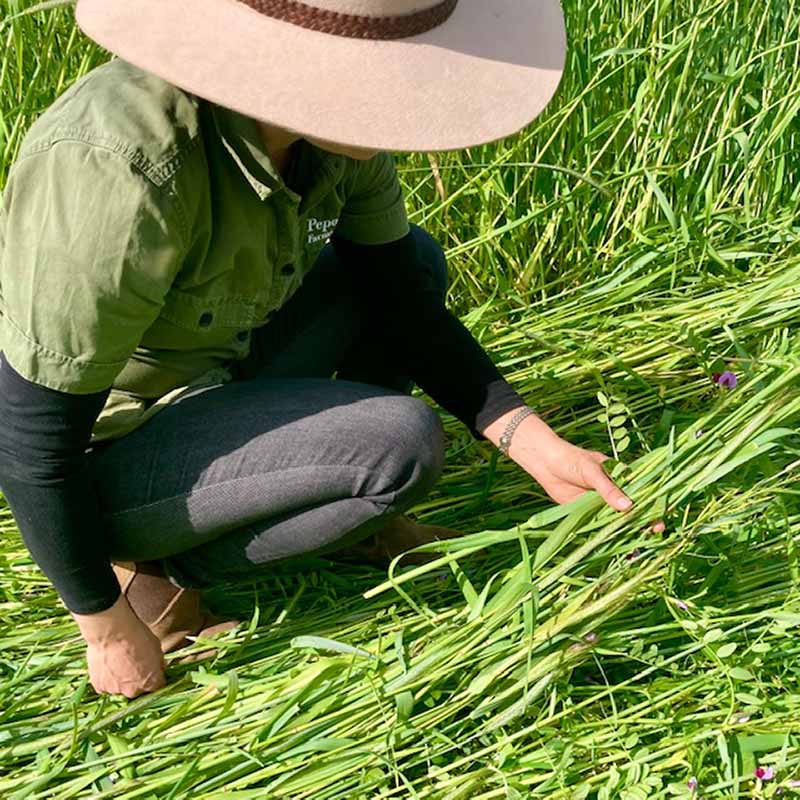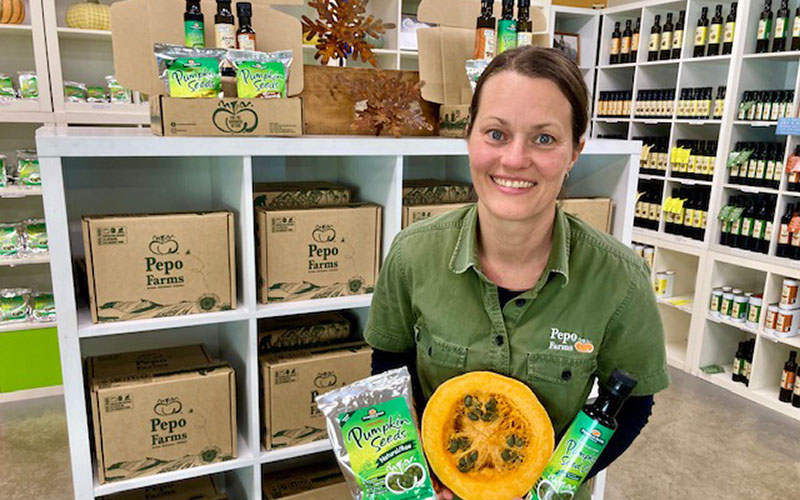In an effort to farm in climatic conditions closer to those in Slovenia, 13 years ago Sharan moved the business from Queensland, where she and her family had started it, to north-east Victoria. She had to work out how to grow the plants in improved, but new, climatic conditions, with no industry support.
Sharan's come a long way, creating a growing industry and a value-add business while also supporting other farmers on their food production journey. However, there's always room for innovation and improvement, and she is working on how to control weeds, retain moisture and improve soil health in her farming operation.
Weed control
Weed control is a major issue for Pepo Farms. They don't use chemicals, and regular tilling of the ground can be time consuming, expensive and bad for soil health. Grasses are the most common problem for the operation, with weeds sapping the soil of water and nutrients.
Water retention
Pepo Farms relies on overhead irrigation to get the pumpkin plants to produce in what can be scorching Australian summer heat, even in the climate of the Alpine Valley. The farm is looking at converting its overhead watering system to drip tape to reduce water consumption and evaporation. 'The tape can go on top of the soil or we can bury it,' Sharan says, further explaining that irrigation is mostly required later in the growing season when there is lots of leaf cover and the roots are down deep.
Soil health
What you take from the soil you've got to give back.
Soil health is very important to Sharan. She adds worm juice from NutriSoil, guano and a winter cover crop, but is always looking for new ways to increase organic matter and biology to the soil. 'Throughout the season we're checking on fertiliser rates with petiole tests to monitor what the plant is actively using,' she says. Pumpkins are traditionally grown in a rich organic soil, so optimised soil health is also required for healthy productive plants. 'What you take from the soil you've got to give back,' she says.





